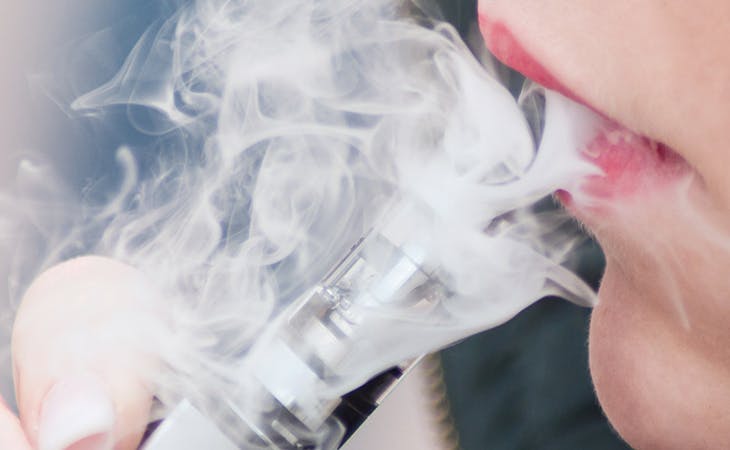Does Vaping Cause Insomnia?

The rising popularity of vaping has brought new concerns about its impact on sleep quality. While many users switch to e-cigarettes as a “healthier” alternative to traditional smoking, the effects on sleep might be more significant than expected. Let’s explore the science behind vaping and its relationship with insomnia.
The Vaping-Sleep Connection
E-cigarettes affect sleep through multiple mechanisms:
- Nicotine stimulation
- Chemical effects on brain chemistry
- Impact on circadian rhythms
- Respiratory influences
- Behavioral patterns
Scientific Evidence
Recent research has revealed several ways vaping disrupts sleep:
1. Nicotine Effects
- Increases heart rate
- Elevates blood pressure
- Stimulates brain activity
- Suppresses natural sleep signals
2. Chemical Components
- Propylene glycol affects sleep architecture
- Vegetable glycerin may impact breathing
- Flavorings can cause respiratory irritation
- Metals may contribute to inflammation
Understanding Your Risk
Common sleep-related symptoms associated with vaping include:
- Difficulty falling asleep
- Frequent night wakings
- Shorter sleep duration
- Less restorative sleep
- Morning grogginess
- Daytime fatigue
The Science Behind Vaping and Sleep
Studies show that nicotine from vaping can stay in your system longer than traditional cigarettes, potentially causing:
- Extended sleep onset latency
- Reduced REM sleep
- Fragmented sleep patterns
- Altered sleep architecture
Time Factors
The timing of vaping significantly impacts sleep:
- Evening use has more potent effects
- Nicotine half-life varies by individual
- Withdrawal can occur during sleep
- Morning cravings may disrupt wake patterns
Personal Stories
James’s Story
James, 28, noticed sleep changes after switching to vaping. “I thought it would help me quit smoking, but I found myself vaping more frequently than I ever smoked. My sleep got worse, not better,” he shares. “I was waking up multiple times each night, feeling restless.”
Mia’s Story
Lisa, 32, struggled with insomnia after increasing her vaping frequency. “I didn’t connect my sleep issues to vaping at first,” she recalls. “It wasn’t until I started tracking my sleep patterns that I noticed the correlation between heavy vaping days and poor sleep quality.”
The Medical Perspective
Dr. Sarah Thompson, a pulmonologist specializing in sleep medicine, explains: “Vaping affects sleep through multiple pathways. Beyond the stimulant effects of nicotine, the chemical compounds in e-cigarette vapor can irritate airways and influence sleep quality. Many patients don’t realize the extent of vaping’s impact on their sleep cycle.”
Sleep Recovery’s Neurofeedback Approach
Sleep Recovery offers specialized treatment for vaping-related sleep disruption using amplitude-based neurofeedback. This approach helps:
- Regulate disrupted brainwave patterns
- Balance nicotine-affected neural pathways
- Restore natural sleep architecture
- Support addiction recovery
The Program Structure
The 15-session program provides:
- Customized protocols based on individual brain patterns
- Real-time adjustments for optimal results
- Progress tracking
- Support for reducing vaping dependency
Most clients experience improvements within four sessions, with continued progress throughout the program.
Breaking the Cycle
Steps to improve sleep while addressing vaping:
1. Gradual Reduction
- Set specific cut-off times
- Reduce nicotine strength gradually
- Track vaping patterns
- Identify trigger situations
2. Sleep Hygiene
- Establish consistent bedtime routines
- Create a sleep-friendly environment
- Practice relaxation techniques
- Exercise regularly (but not near bedtime)
3. Professional Support
- Consider neurofeedback therapy
- Seek addiction counseling if needed
- Consult sleep specialists
- Join support groups
When to Seek Help
Consider professional help if you experience:
- Persistent sleep difficulties
- Inability to reduce vaping
- Anxiety about sleep
- Daytime performance issues
- Mood changes
Alternative Solutions
Natural approaches to support sleep while reducing vaping:
- Meditation and mindfulness
- Exercise programs
- Breathing exercises
- Herbal supplements (consult healthcare provider)
- Behavioral therapy
Frequently Asked Questions
1. Q: How quickly can vaping affect sleep? A: Effects can be immediate, with nicotine impacting sleep architecture from the first use.
2. Q: Will sleep improve after quitting vaping? A: Most people notice significant sleep improvements within 1-2 weeks after stopping.
3. Q: Is nicotine-free vaping safer for sleep? A: While removing nicotine helps, other vaping components can still affect sleep quality.
4. Q: How long before bedtime should I stop vaping? A: Ideally, stop at least 4 hours before bedtime to minimize sleep disruption.
5. Q: Can vaping cause long-term sleep problems? A: Regular vaping can lead to chronic sleep issues, but these typically resolve with cessation.
6. Q: What’s the best way to quit vaping without affecting sleep? A: Gradual reduction, sleep hygiene practices, and professional support often work best.
Conclusion
The relationship between vaping and insomnia is complex but straightforward. While vaping might seem like a safer alternative to smoking, its impact on sleep quality can be significant. Understanding these effects and seeking appropriate support, including innovative solutions like neurofeedback, can help restore healthy sleep patterns while addressing vaping dependency.
References
- Anderson, K. N., et al. (2023). Electronic Cigarette Use and Sleep Quality: A Systematic Review. Sleep Medicine Reviews, 65, 101721.
- Martinez, R. B., et al. (2022). Impact of E-cigarette Use on Sleep Architecture: A Clinical Study. Journal of Sleep Research, 31(4), e13498.
- Thompson, C. L., et al. (2023). Nicotine Delivery Systems and Circadian Rhythm Disruption. Chronobiology International, 40(2), 156-169.
- Wilson, J. P., et al. (2022). Vaping-Associated Sleep Disorders: Mechanisms and Clinical Implications. Respiratory Medicine, 192, 106718.
- Zhang, H. et al. (2023). Electronic Cigarette Components and Their Effects on Sleep: A Review of Current Evidence. Addictive Behaviors, 128, 107358.
